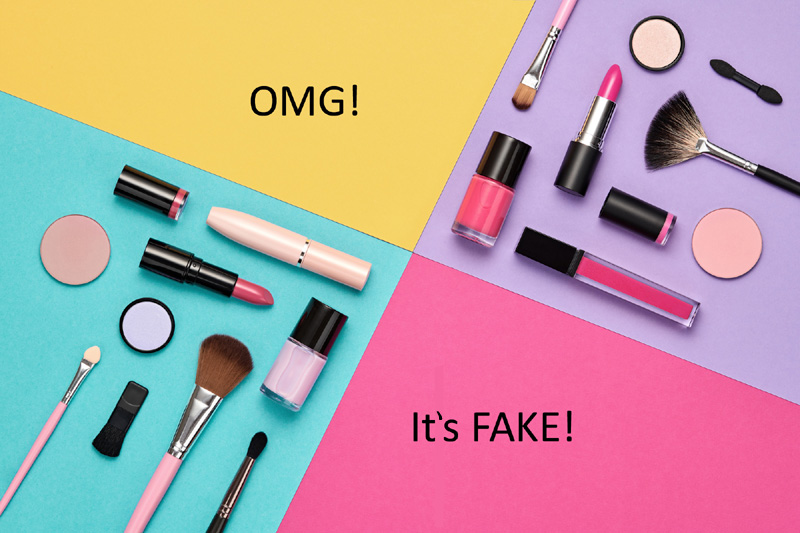
 Within weeks of its offices being served notice for selling fake cosmetic products, the e-commerce giants seem to be getting their act together
Within weeks of its offices being served notice for selling fake cosmetic products, the e-commerce giants seem to be getting their act together
Soon after being pulled up by the authorities for selling spurious products—following a notice by DCGI—the e-commerce giants, Amazon and Flipkart seem to be getting their act together. With the big fat Indian wedding season setting in, cosmetics sales are sure to surge. These two online marketplace biggies are now said to be working hard to ensure that their customers receive only genuine products, reports Mint. As published earlier, these websites along with IndiaMart had received a rap on the knuckles from the national regulator for sale of bogus and adulterated cosmetics via their websites.
As per a RedSeer Consulting report, the $50 million cosmetics e-market makes up two per cent of the Indian cosmetics segment, and is rapidly expanding with increasing internet penetration. Lucrative profits clubbed with a new, growing market and easy sales platforms like well-known websites make this category more susceptible to fake and illegal products. But the recent action by the Drug Controller General of India (DCGI) promises to set the record straight for the industry.
Shocking revelations during the raids
Central Drugs Standard Control Organisation (CDSCO) raided thirty shipping hubs and warehouses of the Amazon and Flipkart across eight states on October 5 and 6, 2018. The officials recovered cosmetic products worth ₹4 crore, manufactured locally without a valid license or imported illegally and containing ingredients classified as hazardous to human health. Skin whitening creams, skin peel exfoliators, stem-cell based cosmetics, hair serums, anti-hair loss solutions, botulinum toxin injections, hyaluronic acid filler injections and many more such products were seized.
Under the provisions of Drugs and Cosmetics Act, 1940, all cosmetics must adhere to the standards set by the BIS, ensuring use of no ingredients mentioned in the “negative list”. Additionally, to indigenously manufacture cosmetics, a manufacturing license is required while a registration certificate is mandatory for importing cosmetics.
The regulator also found that these products were being sold via these websites without any safety or quality audits. Following these raids, the DCGI came down strongly on these e-commerce sites, issuing them a show cause notice, with a 10-day response timeline else warning them of stringent action. As per an DCGI official, the e-marketplaces have substantially increased the availability of unregulated cosmetics and allied products, injectable and stem cell-based cosmetics being examples, reported the Mint.
Strong action promised by e-tailers
Reportedly, the top representatives from these companies met with the DCGI officials and have committed to arrest the sale of such fake and adulterated cosmetics. The drug regulator has asked these e-commerce sites to review and correct their systems as well as de-list all such spurious and illegal products from their websites. These companies have also been advised to have different agreements with sellers to check and thwart the sales of such products.
DCGI emphasises that it is responsibility of the online marketplaces to ensure the quality and authenticity of the products sold via their platform. The companies must also have a check in place for valid manufacturing or import licenses as the case may be. He has warned companies of strict action, including a formal police complaint in case they fail to comply to these requirements.
To ensure compliance, Amazon and Flipkart executives have been asked submit key data about sellers on their websites including their license numbers and validity. Separately, DCGI officials had made note of manufacturers of unlicensed products and distributors of illegally imported cosmetics during their raids.
Interestingly, an Amazon spokesperson had earlier countered the show cause notice, stating that the site was a marketplace which enables third-party sellers to offer their products to consumers. Amazon does not own any of the products listed or sold via their platform. Therefore, it is the sellers who are responsible for all regulatory compliances. However, in keeping with the Information Technology Act, Amazon does take action against sellers involved in sale of phony or illicit products, as and when such cases are highlighted.
The stakes are high
LocalCircles, a citizen engagement platform surveyed 30,000 respondents to understand how serious is the menace of counterfeits. The results, as published by Times of India, reveal that one out of five products received by online customers in the last six months was a fake. Cosmetics and fragrances top the list of counterfeits with 35% of products shipped being bogus, taking the ratio of phony products in these categories to as high as one in three.
Maximum respondents, 37 percent, chose Snapdeal as the platform that shipped most fake products while 20 percent each selected Flipkart, PayTM Mall and Amazon.
Expanding online markets are facing counterfeits as a major challenge world over. And the issue is more prominent in the marketplace model with maximum third-party sellers and limited control. However, the e-commerce sites are implementing policy changes to check the sale of fakes, while even offering free refunds to consumers. While some are taking to penal action like delisting of sellers, if proven to have shipped a fake product, others are training the sellers on their platform to effectively impede the sale of spurious products.
References:
https://www.medianama.com/2018/11/223-amazon-flipkart-fake-cosmetic-sellers-india-dcgi/
http://redseer.com/wp-content/uploads/2017/10/118-Cosmetics-Industry-Report_Final_July2017.pdf

